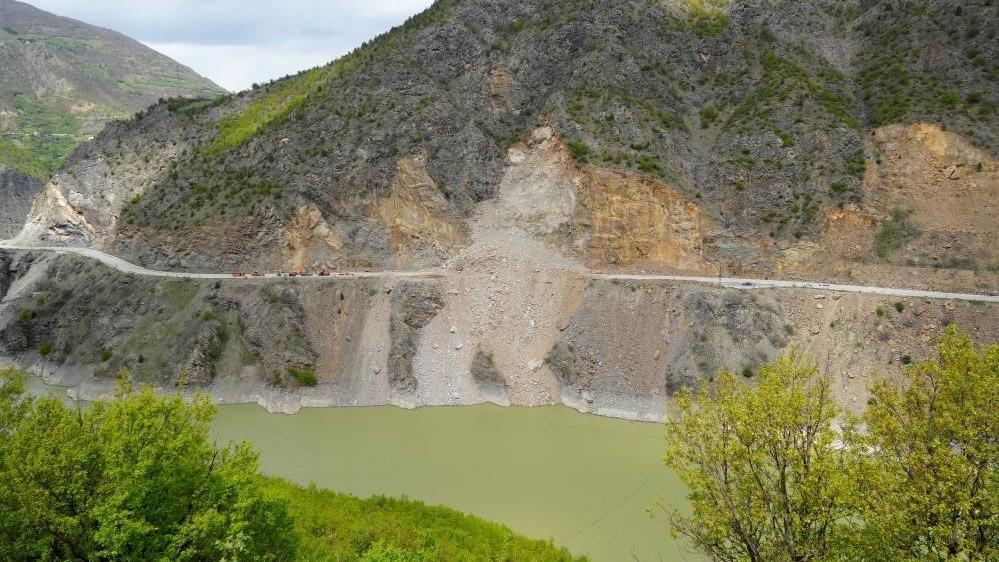
Frequent landslides and rockfalls, triggered by heavy rainfall and rugged mountainous terrain, are jeopardizing transportation safety along the highways of Türkiye's Eastern Black Sea Region, prompting academics and public institutions to collaborate on urgent slope stabilization efforts.
Experts especially warn that the combination of steep slopes, soared due to road expansion projects, and saturated soil has weakened highway embankments, leading to a growing number of slope failures.
The risk is particularly high in provinces such as Gümüşhane, Trabzon, Rize and Artvin, where many roads pass through rugged, elevated landscapes.
Speaking to the press, Professor Dr. Arzu Fırat Ersoy, director of the landslide research center at Karadeniz Technical University (KTÜ) in Trabzon, said the highway slopes in the region are increasingly unstable.
“As a research center, we’re working with public institutions to find solutions to the recurring rockfall incidents along key transportation routes,” she said.
Ersoy noted that many of the region’s highways were originally narrower but have been expanded in recent decades to improve intercity travel.
However, this expansion has made the slopes even steeper and more vulnerable to landslides.
“For instance, on April 23, a rockfall occurred along the Torul-Kürtün highway [in Gümüşhane], forcing the road to close. Some of the falling debris even reached the nearby reservoir,” she explained. “The rock masses on these expanded slopes are now reaching a point of fatigue, they’re starting to collapse on their own.”
To address the issue, KTÜ has developed several technical projects in collaboration with regional authorities.
According to Ersoy, improvement work is already underway on the Torul-Kürtün and Hopa-Artvin highway slopes as part of joint efforts with the regional highways authorities.